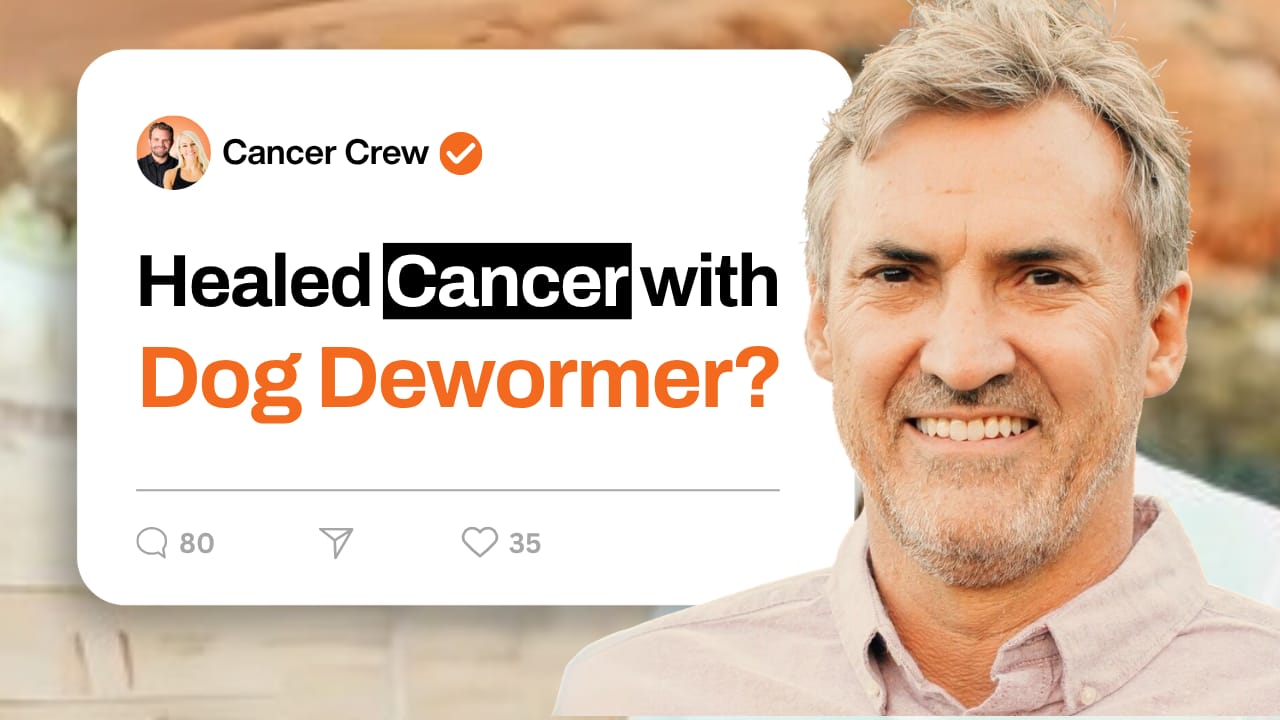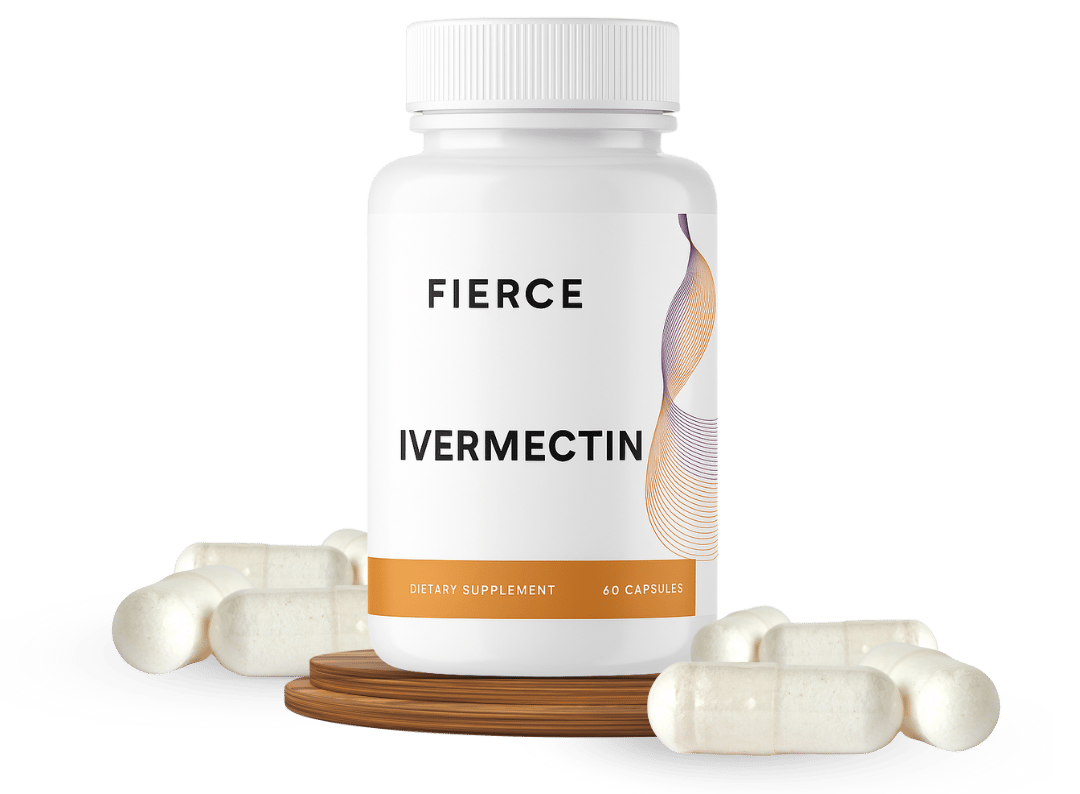Sponsored by
When Roger Rasmussen received his prostate cancer diagnosis in December 2019, he had no idea that a chance conversation about "dog dewormer" would change his life. Sitting in a holistic doctor’s waiting room (a visit he only agreed to because a friend insisted), Roger overheard a woman discussing an unconventional cancer treatment.
“She mentioned dog dewormer and cancer,” Roger recalls in our recent podcast conversation. “My natural reaction was like, ‘Where am I? This is the Twilight Zone—get me out of here!”
But that night, curiosity led him to research Joe Tippens’ blog, where he discovered Fenbendazole—an anti-parasitic medication commonly used for pets that showed promising effects against cancer.

A COVID Silver Lining
As Roger considered his options—surgery, radiation, or chemotherapy—the world shut down due to COVID-19. His scheduled prostate removal in April 2020 was pushed to summer. While most of us curse the pandemic’s timing, Roger calls it his lifesaver.
“COVID gave me more time to explore Fenbendazole and try it out. That’s why I was happy for that delay,” he explains.
During this unexpected window, Roger began taking Fenbendazole along with supplements recommended in Joe Tippens’ protocol. When his PSA levels started dropping and a self-arranged MRI showed his tumors shrinking, he made the bold decision to cancel his surgery entirely.

The Courage to Trust Yourself
What stands out in Roger’s story isn’t just that he found an unconventional path—it’s that he had the courage to walk it. Against medical opinion, Roger continued monitoring his cancer with privately paid MRIs while maintaining his protocol.
“I got nine MRIs over the next year and a half,” he shares. “I wanted to check every three or four months because I was in no man’s land doing my own thing.”
His persistence paid off. The cancer continued to respond, and eventually, he stopped the protocol altogether in 2022. Remarkably, his PSA levels have remained stable even after discontinuing the Fenbendazole treatment.

Our Recommended Anti-parasitic Source
More and more cancer patients are including Ivermectin in their personal protocol.
Not as a miracle cure. Not as a Hail Mary.
But as one more weapon in a war that demands everything you've got.
Nobel Prize–winning antiparasitic
Researched for anti-cancer properties
Doctor-reviewed, pharmacy-prepared
Fierce Health now offers pharmacy-compounded ivermectin — shipped directly from a licensed U.S. facility.
Pure, tested, and FDA-compliant sourcing
No horse paste, no shady international sites
Easy online ordering
Whether you're using ivermectin as part of an anti-parasitic protocol, for chronic inflammation support, or as directed by your practitioner — this is a clean, trusted option.
Use code CancerCrew25 for 25% off your order.
A Brother’s Confirmation
If Roger’s story seems like an outlier, consider this: Roger shared his protocol when his brother received the same diagnosis in 2022. Within a few months, his brother’s follow-up MRI showed no evidence of disease.
Even Roger’s skeptical doctor, who had once dismissed the approach as “voodoo medicine,” could only call the results “remarkable.”

Beyond Anecdotes: The Science
Roger’s contribution is particularly valuable because of his dedication to understanding the scientific foundation behind these treatments. His new book, Finding Fenbendazole, compiles 59 research studies examining how these compounds affect cancer cells.
Roger humbly approaches the subject, never claiming to have all the answers. Instead, he offers what he’s learned from his journey and the growing body of research that suggests these overlooked compounds may have significant anti-cancer properties.

The Protocol Evolution
The approach to using these compounds has evolved since Joe Tippens first shared his story. Roger explains that taking Fenbendazole daily (rather than the original 3-days-on, 4-days-off protocol) and adding Ivermectin has shown better results in many cases.
“When you do three days on and four days off, you’re giving cancer a four-day weekend to do its thing,” Roger points out.
He also emphasizes the importance of taking these compounds with fat for absorption and monitoring liver function with regular blood tests—practical advice that can significantly improve effectiveness. (We actually wrote out the entire protocol he recommends here.)

An Asymmetric Bet
What makes this approach worth considering? As we discussed in the podcast, it represents what we call an “asymmetric bet”—where the potential upside far outweighs the downside risk.
“It’s a relatively low investment, low-risk alternative,” Roger notes. “And the payoff is huge.”
This doesn’t mean abandoning conventional medicine or diving blindly into alternatives. It means considering options that, when the evidence and circumstances align, might offer hope where standard treatments have plateaued.

Finding Your Own Path
Roger’s story reminds us that sometimes the most courageous act isn’t fighting against a system but quietly charting your own course alongside it. He didn’t storm out of his doctor’s office or burn bridges—he simply added another strategy to his healing journey.
“I kept a lid on it,” he admits. “I thought, well, I’m going to try this, and if it works, I’ll tell people. If it doesn’t, I’m not going to let them know how crazy I really am.”
But perhaps the most valuable part of Roger’s story isn’t the specific protocol—it’s the reminder that sometimes healing requires us to trust our intuition, do our research, and have the courage to explore paths less traveled.

If you found this post helpful, you’ll probably love Cancer Crew Plus
We are sick of patients suffering in silence, so we decided to build a community where cancer patients and their caretakers can share what's working, what’s not, and what’s hard, even when the cancer is shrinking. In fact, we live-stream every interview to the Cancer Crew Community so crew members can ask questions and receive advice for their specific situation.
Here’s what one Crew member said about her experience so far:

With heart,
Raleigh and Carli
Founders of The Cancer Crew





